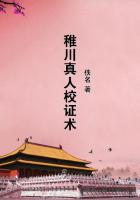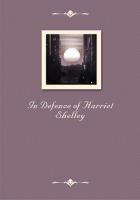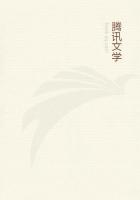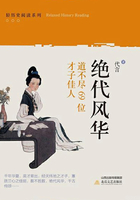An article on "Vanity Fair" and "Jane Eyre" had appeared in the Quarterly Review of December, 1848. Some weeks after, Miss Bronte wrote to her publishers, asking why it had not been sent to her;and conjecturing that it was unfavourable, she repeated her previous request, that whatever was done with the laudatory, all critiques adverse to the novel might be forwarded to her without fail. The Quarterly Review was accordingly sent. I am not aware that Miss Bronte took any greater notice of the article than to place a few sentences out of it in the mouth of a hard and vulgar woman in "Shirley," where they are so much in character, that few have recognised them as a quotation. The time when the article was read was good for Miss Bronte; she was numbed to all petty annoyances by the grand severity of Death. Otherwise she might have felt more keenly than they deserved the criticisms which, while striving to be severe, failed in logic, owing to the misuse of prepositions; and have smarted under conjectures as to the authorship of "Jane Eyre," which, intended to be acute, were merely flippant. But flippancy takes a graver name when directed against an author by an anonymous writer. We call it then cowardly insolence.
Every one has a right to form his own conclusion respecting the merits and demerits of a book. I complain not of the judgment which the reviewer passes on "Jane Eyre." Opinions as to its tendency varied then, as they do now. While I write, I receive a letter from a clergyman in America in which he says: "We have in our sacred of sacreds a special shelf, highly adorned, as a place we delight to honour, of novels which we recognise as having had a good influence on character OUR character. Foremost is 'Jane Eyre.'"Nor do I deny the existence of a diametrically opposite judgment.
And so (as I trouble not myself about the reviewer's style of composition) I leave his criticisms regarding the merits of the work on one side. But when--forgetting the chivalrous spirit of the good and noble Southey, who said: "In reviewing anonymous works myself, when I have known the authors I have never mentioned them, taking it for granted they had sufficient reasons for avoiding the publicity"--the Quarterly reviewer goes on into gossiping conjectures as to who Currer Bell really is, and pretends to decide on what the writer may be from the book, Iprotest with my whole soul against such want of Christian charity. Not even the desire to write a "smart article," which shall be talked about in London, when the faint mask of the anonymous can be dropped at pleasure if the cleverness of the review be admired--not even this temptation can excuse the stabbing cruelty of the judgment. Who is he that should say of an unknown woman: "She must be one who for some sufficient reason has long forfeited the society of her ***"? Is he one who has led a wild and struggling and isolated life,--seeing few but plain and outspoken Northerns, unskilled in the euphuisms which assist the polite world to skim over the mention of vice? Has he striven through long weeping years to find excuses for the lapse of an only brother; and through daily contact with a poor lost profligate, been compelled into a certain familiarity with the vices that his soul abhors? Has he, through trials, close following in dread march through his household, sweeping the hearthstone bare of life and love, still striven hard for strength to say, "It is the Lord! let Him do what seemeth to Him good"--and sometimes striven in vain, until the kindly Light returned? If through all these dark waters the scornful reviewer have passed clear, refined, free from stain,--with a soul that has never in all its agonies cried "lama sabachthani,"--still, even then let him pray with the Publican rather than judge with the Pharisee.
"Jan. l0th, 1849.
"Anne had a very tolerable day yesterday, and a pretty quiet night last night, though she did not sleep much. Mr. Wheelhouse ordered the blister to be put on again. She bore it without sickness. I have just dressed it, and she is risen and come down-stairs. She looks somewhat pale and sickly. She has had one dose of the cod-liver oil; it smells and tastes like train oil. Iam trying to hope, but the day is windy, cloudy, and stormy. My spirits fall at intervals very low; then I look where you counsel me to look, beyond earthly tempests and sorrows. I seem to get strength, if not consolation. It will not do to anticipate. Ifeel that hourly. In the night, I awake and long for morning;then my heart is wrung. Papa continues much the same; he was very faint when he came down to breakfast. . . . Dear E----, your friendship is some comfort to me. I am thankful for it. I see few lights through the darkness of the present time, but amongst them the constancy of a kind heart attached to me is one of the most cheering and serene.""Jan. 15th, 1849.
"I can scarcely say that Anne is worse, nor can I say she is better. She varies often in the course of a day, yet each day is passed pretty much the same. The morning is usually the best time; the afternoon and the evening the most feverish. Her cough is the most troublesome at night, but it is rarely violent. The pain in her arm still disturbs her. She takes the cod-liver oil and carbonate of iron regularly; she finds them both nauseous, but especially the oil. Her appetite is small indeed. Do not fear that I shall relax in my care of her. She is too precious not to be cherished with all the fostering strength I have. Papa, I am thankful to say, has been a good deal better this last day or two.
"As to your queries about myself, I can only say, that if Icontinue as I am I shall do very well. I have not yet got rid of the pains in my chest and back. They oddly return with every change of weather; and are still sometimes accompanied with a little soreness and hoarseness, but I combat them steadily with pitch plasters and bran tea. I should think it silly and wrong indeed not to be regardful of my own health at present; it would not do to be ill NOW.

